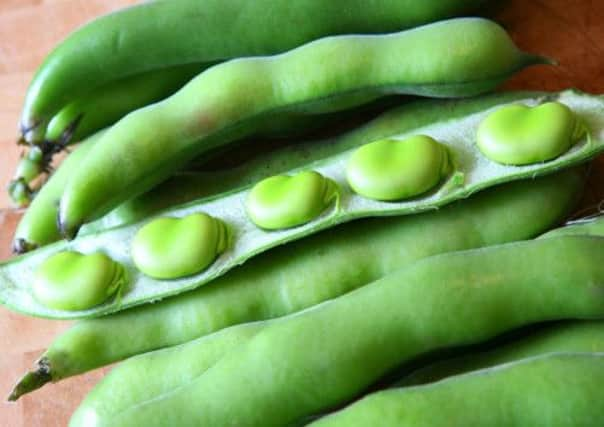Aberdeen scientists in alternative protein study


The aim of the study, being conducted by scientists at Aberdeen University, is to determine whether Scottish-grown produce could be used as a protein supplement in food products to replace soya - a plant that cannot be grown by Scottish farmers because of the climate.
And it already known that Scottish-grown food products containing lupin, buckwheat, broad beans and peas already provide the body with fibre and other compounds which may help prevent cancer and cardiovascular disease.
Advertisement
Hide AdAdvertisement
Hide AdDr Alexandra Johnstone from Aberdeen University’s world-renowned Rowett Institute of Nutrition and Health is leading the research, She explained: “Protein is an important component of a healthy, balanced diet and is found in many of the foods that we eat.
“The world population is growing and this is leading to increased global demand for food ingredients containing protein. To help minimise the future impact of these global changes for Scotland, we need to seek additional and sustainable protein sources to increase those currently used.”
She continued: “Our study is an important part of this process and will examine the nutritional and health effects of supplementing diets with protein from plants which can be grown in Scotland. We believe lupin, buckwheat, broad beans and peas, could provide our bodies with the same nutritional status as more traditional protein sources, whilst delivering additional health benefits.
“We are seeking volunteers to eat bread containing flours from these plants to test our ideas.”
A university spokeswoman explained: “Volunteers will be asked to eat bread rolls baked with flours from lupin, buckwheat broad beans and peas for breakfast, before giving blood and urine samples. Healthy 18-65 year old people are sought for the study, which will take place over several visits to the Rowett Institute of Nutrition and Health in Bucksburn, Aberdeen.”
Dr Johnstone said: “We hope our findings can pave the way for the development of new processed foods in the future. Currently soya is commonly used as a protein supplement in food products. It is not however, a plant that can be grown in Scotland and what we hope to achieve through this research, is to find alternative protein-rich plant sources that thrive on Scottish soil, and therefore support the nation’s food industry in the development of sustainable food products in the future.”
The study is part of a wider Scottish Government funded project being undertaken at the Rowett Institute of Nutrition and Health investigating the potential health benefits of Scottish produce.
SEE ALSO